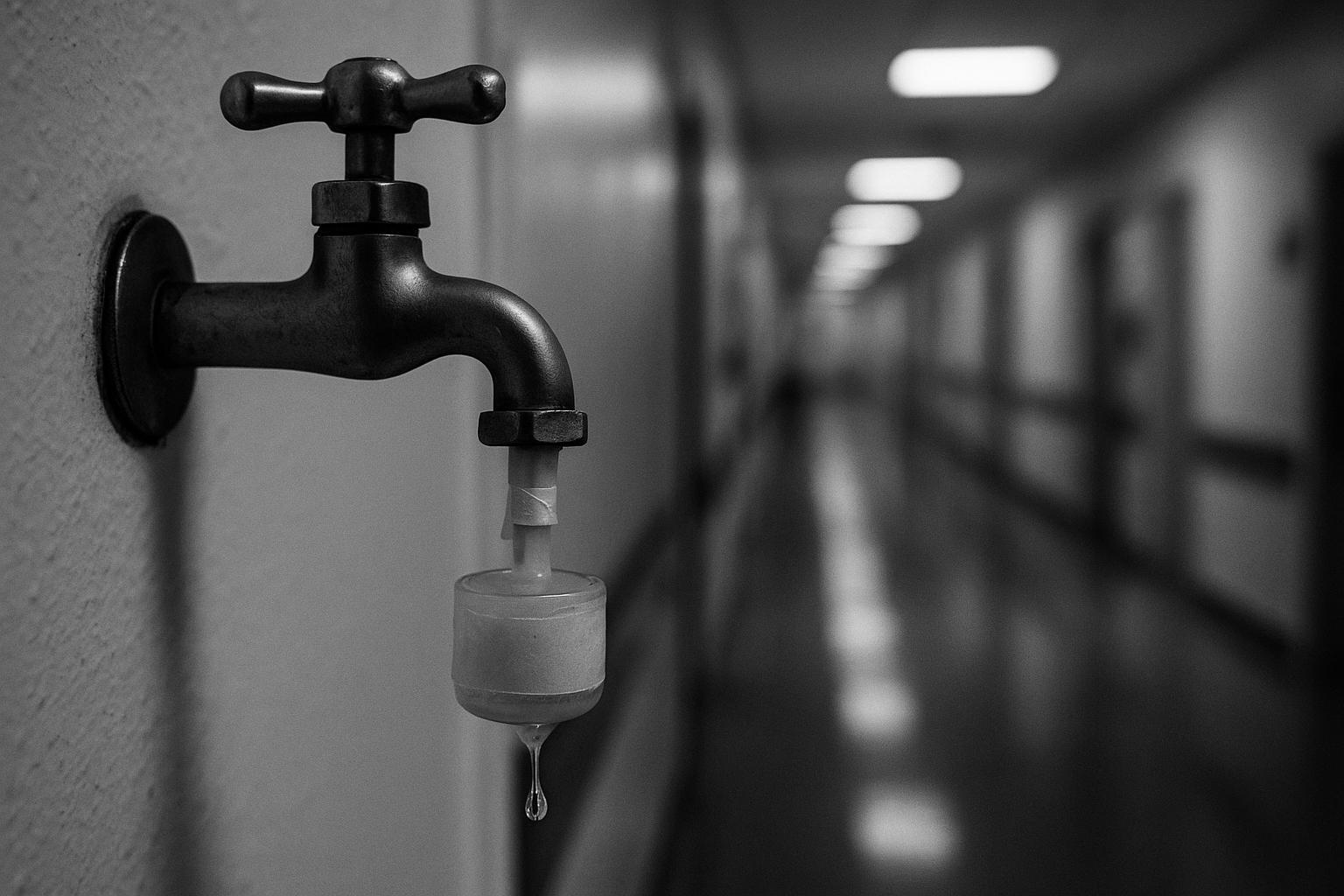Rumours of a new property tax in London have put home movers on edge — and the Royal Papworth waterborne outbreak after its 2019 move to the Cambridge Biomedical Campus shows how big policy and infrastructure choices can have unintended, sometimes deadly, consequences unless governance, safety and transparency keep pace.
London movers have been watching for signs of any shift in stamp-duty policy, with rumours swirling that a new property tax could replace or replace-like the current stamp duty regime. The Evening Standard flagged the question in bold terms—“An end to stamp duty?”—and asked what such a change could mean for London home movers navigating a market that remains sensitive to policy signals. In parallel to this housing debate, practical questions about public-sector planning and safety have dominated headlines in recent years, none more stark than the outbreak at Royal Papworth Hospital in Cambridge after it moved to the Cambridge Biomedical Campus in 2019. The hospital’s experience offers a sobering counterpoint to the housing policy debate, illustrating how large-scale public decisions and investments can have unintended consequences if governance, safety and accountability frameworks are not kept robust.
The Public Health and hospital coverage around Royal Papworth illuminate how policy and infrastructure decisions interact with patient safety. BBC reporting on the 2019 outbreak notes that 21 patients with lung conditions were infected in the months after Papworth’s move to the Cambridge Biomedical Campus, with investigators identifying the water supply as the most probable source of Mycobacterium abscessus transmission. In response to the outbreak, hospital staff fitted taps and showers with filters and introduced additional safety measures. This episode underscored the fragility of hospital water systems in new campuses and the urgent need for proactive risk management as facilities scale up. According to that BBC account, such incidents prompted public-health responses aimed at preventing recurrence across new NHS facilities. The same period saw legal and professional scrutiny, with Irwin Mitchell representing families seeking accountability and answers in the inquest process. In a statement, the firm emphasised that the families deserved answers and accountability, highlighting the demand for transparency after traumatic events linked to transplant care.
A separate, parallel thread in the Papworth story concerns the trajectory of official oversight and clinical safety guidance. A Cambridgeshire coroner prepared a Prevention of Future Deaths report that warned current guidance on preventing water-borne bacteria in new hospitals was lacking and could contribute to further deaths. The coroner cited evidence that dozens of patients had contracted mycobacterium abscessus since Papworth opened in 2019, with immunosuppressed patients most at risk, and urged urgent review and amendment of safe-water documentation, alongside consideration of how hospital water systems are designed, installed and operated in new builds. The hospital itself has since published details of its protective measures, including point-of-use water filters, hydrogen peroxide dosing, ultraviolet treatment, bottled water for vulnerable patients and expanded water sampling, with testing and public-health collaboration continuing to monitor outcomes. Government and industry safety discussions in this area mirror the gravity of these undertakings, illustrating how critical it is for policy and practice to keep pace with changing infrastructure needs.
On the legal and financial front, the Papworth outbreak translated into meaningful civil-action activity. An Evening Standard report described a nine-patient outbreak leading to six-figure compensation settlements, with Irwin Mitchell quoted as noting that three patients died and the remaining six suffered serious complications linked to the water supply; the NHS trust involved denied liability. Separately, Irwin Mitchell has highlighted that more than 20 patients were affected, with the firm reiterating its commitment to supporting families through the inquest process and seeking transparency and accountability in how such outbreaks are managed. The combined picture—disputes over liability, settlements, and ongoing inquests—emphasises how quickly public-health incidents can morph into complex legal and policy questions, shaping public trust in healthcare and, by extension, confidence in public policy more broadly.
Against that backdrop, observers returning to London’s housing debate may reflect on the broader theme: policy changes—whether a tax regime or hospital safety standards—carry consequences that stretch beyond the initial sector. The rumoured property-tax shift discussed in the Evening Standard continues to prompt questions about how London’s housing market would adjust to altered cost structures, and how policymakers communicate risk and manage expectations for movers who are weighing timing, financing and location. As the market awaits clarity, the Papworth case serves as a reminder that governance, due-diligence, and clear, credible guidance are essential when policy decisions intersect with people’s daily lives and long-term plans.
 Reference Map:
Reference Map:
Source: Noah Wire Services
- https://www.standard.co.uk/news/crime/royal-papworth-hospital-irwin-mitchell-cambridge-lawyers-derek-b1243700.html – Please view link – unable to able to access data
- https://www.bbc.co.uk/news/uk-england-cambridgeshire-54073966 – A BBC report outlines the 2019 bacterial outbreak at Royal Papworth Hospital, where a patient died after developing pancreatitis likely linked to antibiotics given to treat the infection. The serious incident review recorded 21 infected patients across those treated for lung conditions after the hospital moved to the Cambridge Biomedical Campus in 2019. Investigators concluded the hospital’s water supply was the most probable source of Mycobacterium abscessus transmission. In response, hospital staff fitted filters to taps and showers and implemented additional safety measures. The article also notes public health responses to prevent similar incidents in new NHS facilities across England.
- https://www.bbc.com/news/articles/cjr28p1yxgqo – Following inquests into Anne Martinez and Karen Starling, a Cambridgeshire coroner prepared a Prevention of Future Deaths report warning that guidance for preventing water-borne bacteria in new hospitals was lacking and could lead to further deaths. The report cited evidence that 34 people had contracted mycobacterium abscessus at Royal Papworth Hospital since it opened in 2019, with immunosuppressed patients most at risk. It urged urgent review and amendment of safe-water documentation and consideration of design, installation, commissioning and operation of hospital water systems in new builds, to prevent recurrence in future. The coroner urged clearer guidance to protect patients everywhere.
- https://www.royalpapworth.nhs.uk/mycobacterium-abscessus – Royal Papworth Hospital explains the Mycobacterium abscessus outbreak occurred after moving to the Cambridge Biomedical Campus in August 2019, with two post-lung transplant patients testing positive for the bacteria. The hospital conducted a thorough SI investigation and confirmed bacteria in the water supply. In response, it implemented multiple protective measures, including point-of-use water filters, hydrogen peroxide dosing, ultraviolet treatment, bottled water for vulnerable patients and expanded water sampling. The hospital states these actions have reduced mycobacteria counts and that no outlet has yielded M. abscessus with a POU filter installed. Testing and collaboration with public health advisers remain in place.
- https://www.irwinmitchell.com/news-and-insights/newsandmedia/2022/november/inquest-into-deaths-of-mums-who-contracted-bacterial-infection-after-undergoing-transplants – Lawyers at Irwin Mitchell announced they are representing families following the Royal Papworth Hospital bacterial outbreak, focusing on the inquest into the deaths of Karen Starling and Anne Martinez after their transplants. The article notes that more than 30 patients were believed to be affected, with the inquest and investigations examining the link to the hospital’s water supply. The firm emphasised the families’ desire for answers and accountability, and highlighted concerns about how such outbreaks were handled during the early stages after the hospital’s 2019 opening. The firm pledged to pursue the inquest process to obtain transparency and lessons learned.
- https://www.standard.co.uk/news/crime/royal-papworth-hospital-irwin-mitchell-cambridge-lawyers-derek-b1243700.html – An Evening Standard report states that a nine-patient outbreak at Royal Papworth Hospital led to compensation payments totalising a six-figure settlement. The article quotes Irwin Mitchell as saying three patients died and the remaining six suffered serious complications following infection with Mycobacterium abscessus after hospital treatment linked to the water supply. It notes the NHS trust denies liability. The piece emphasises that the civil action arose from a group of patients affected by the waterborne outbreak between 2019 and 2022, and that the settlements aim to provide some closure and access to support services for the families involved across England.
- https://www.irwinmitchell.com/news-and-insights/newsandmedia/2020/september/more-than-20-patients-affected-by-bacterial-outbreak-at-royal-papworth-hospital-in-cambridge – Irwin Mitchell announced in September 2020 that more than 20 patients were affected by a bacterial outbreak at Royal Papworth Hospital in Cambridge. The internal investigation noted 21 people with lung conditions infected after the hospital opened in May 2019, including five transplanted patients, with three developing infections. The hospital’s water supply was identified as the most credible source. The law firm stated it was supporting families seeking answers, noting the outbreak’s impact on vulnerable patients such as those awaiting or having undergone transplants. The case underscored the challenges posed by waterborne pathogens in large public healthcare settings in England.
Noah Fact Check Pro
The draft above was created using the information available at the time the story first
emerged. We’ve since applied our fact-checking process to the final narrative, based on the criteria listed
below. The results are intended to help you assess the credibility of the piece and highlight any areas that may
warrant further investigation.
Freshness check
Score:
4
Notes:
The core outbreak narrative is not new: reporting of the Royal Papworth Mycobacterium abscessus events dates back to 2020 (earliest widely circulated reports in Sept 2020) and inquest/coroner coverage in Nov 2022.  Earliest widely available reporting of the same events: Irwin Mitchell commentary (07 Sep 2020) and BBC coverage (08 Sep 2020).
Earliest widely available reporting of the same events: Irwin Mitchell commentary (07 Sep 2020) and BBC coverage (08 Sep 2020).  The Evening Standard piece (Aug 2025) repackages that history but adds a claim about a recent ‘six-figure settlement’ for nine patients which appears to be newly reported in this round — however that settlement detail is currently reported mainly by the Evening Standard and a few republishers and lacks an obvious matching press release from Irwin Mitchell or a clear statement on the trust site.
The Evening Standard piece (Aug 2025) repackages that history but adds a claim about a recent ‘six-figure settlement’ for nine patients which appears to be newly reported in this round — however that settlement detail is currently reported mainly by the Evening Standard and a few republishers and lacks an obvious matching press release from Irwin Mitchell or a clear statement on the trust site.  Because substantially similar material appears in 2020–2022, this is recycled reporting with a new settlement angle; anything that appeared more than 7 days earlier should be flagged. ([irwinmitchell.com](https://www.irwinmitchell.com/news-and-insights/newsandmedia/2020/september/more-than-20-patients-affected-by-bacterial-outbreak-at-royal-papworth-hospital-in-cambridge?utm_source=chatgpt.com), [bbc.co.uk](https://www.bbc.co.uk/news/uk-england-cambridgeshire-54073966), [bbc.com](https://www.bbc.com/news/articles/cjr28p1yxgqo?utm_source=chatgpt.com), [standard.co.uk](https://www.standard.co.uk/news/crime/royal-papworth-hospital-irwin-mitchell-cambridge-lawyers-derek-b1243700.html))
Because substantially similar material appears in 2020–2022, this is recycled reporting with a new settlement angle; anything that appeared more than 7 days earlier should be flagged. ([irwinmitchell.com](https://www.irwinmitchell.com/news-and-insights/newsandmedia/2020/september/more-than-20-patients-affected-by-bacterial-outbreak-at-royal-papworth-hospital-in-cambridge?utm_source=chatgpt.com), [bbc.co.uk](https://www.bbc.co.uk/news/uk-england-cambridgeshire-54073966), [bbc.com](https://www.bbc.com/news/articles/cjr28p1yxgqo?utm_source=chatgpt.com), [standard.co.uk](https://www.standard.co.uk/news/crime/royal-papworth-hospital-irwin-mitchell-cambridge-lawyers-derek-b1243700.html))
Quotes check
Score:
3
Notes:
Several direct quotes in the August 2025 narrative (for example comments attributed to Irwin Mitchell lawyers and to the Trust chief executive) closely match wording used in Irwin Mitchell communications and earlier coverage from 2020–2022.  Identical or highly similar quote phrasing appears in Irwin Mitchell material and past reporting, suggesting reuse rather than exclusive new interviews.
Identical or highly similar quote phrasing appears in Irwin Mitchell material and past reporting, suggesting reuse rather than exclusive new interviews.  No clear evidence these quotes are newly obtained for the Evening Standard piece; some appear to be recycled or paraphrased from prior Irwin Mitchell statements. ([irwinmitchell.com](https://www.irwinmitchell.com/news-and-insights/newsandmedia/2022/november/inquest-into-deaths-of-mums-who-contracted-bacterial-infection-after-undergoing-transplants?utm_source=chatgpt.com), [standard.co.uk](https://www.standard.co.uk/news/crime/royal-papworth-hospital-irwin-mitchell-cambridge-lawyers-derek-b1243700.html))
No clear evidence these quotes are newly obtained for the Evening Standard piece; some appear to be recycled or paraphrased from prior Irwin Mitchell statements. ([irwinmitchell.com](https://www.irwinmitchell.com/news-and-insights/newsandmedia/2022/november/inquest-into-deaths-of-mums-who-contracted-bacterial-infection-after-undergoing-transplants?utm_source=chatgpt.com), [standard.co.uk](https://www.standard.co.uk/news/crime/royal-papworth-hospital-irwin-mitchell-cambridge-lawyers-derek-b1243700.html))
Source reliability
Score:
6
Notes:
Mixed reliability signals: BBC and the Royal Papworth trust pages are authoritative and corroborate the outbreak facts and coroner concerns (strength).  Irwin Mitchell is the legal representative quoted and has published related commentary in 2020 and 2022 (verifiable).
Irwin Mitchell is the legal representative quoted and has published related commentary in 2020 and 2022 (verifiable).  The Evening Standard is an established outlet but the specific settlement claim currently appears in that report and in lower-quality republishers (e.g. news aggregators) and I could not find an independent Irwin Mitchell press release or a clear official trust press statement online confirming the settlement at the time of this check.
The Evening Standard is an established outlet but the specific settlement claim currently appears in that report and in lower-quality republishers (e.g. news aggregators) and I could not find an independent Irwin Mitchell press release or a clear official trust press statement online confirming the settlement at the time of this check.  That lack of an obvious primary-party confirmation reduces confidence in the new settlement detail until confirmed by the firm or trust. ([bbc.co.uk](https://www.bbc.co.uk/news/uk-england-cambridgeshire-54073966), [royalpapworth.nhs.uk](https://royalpapworth.nhs.uk/mycobacterium-abscessus?utm_source=chatgpt.com), [standard.co.uk](https://www.standard.co.uk/news/crime/royal-papworth-hospital-irwin-mitchell-cambridge-lawyers-derek-b1243700.html))
That lack of an obvious primary-party confirmation reduces confidence in the new settlement detail until confirmed by the firm or trust. ([bbc.co.uk](https://www.bbc.co.uk/news/uk-england-cambridgeshire-54073966), [royalpapworth.nhs.uk](https://royalpapworth.nhs.uk/mycobacterium-abscessus?utm_source=chatgpt.com), [standard.co.uk](https://www.standard.co.uk/news/crime/royal-papworth-hospital-irwin-mitchell-cambridge-lawyers-derek-b1243700.html))
Plausability check
Score:
5
Notes:
The claim that Royal Papworth experienced an outbreak after moving to the Cambridge site and that water was the likely source is well supported by trust material, BBC reporting and the coroner’s Prevention of Future Deaths concerns — these elements are plausible and documented.  The new claim that nine patients secured a ‘‘six-figure settlement package’’ is plausible in broad terms (civil claims and settlements have been public in prior Papworth-related litigation) but currently lacks corroboration from primary parties online (no matching Irwin Mitchell press release or published NHS trust settlement notice found in this check).
The new claim that nine patients secured a ‘‘six-figure settlement package’’ is plausible in broad terms (civil claims and settlements have been public in prior Papworth-related litigation) but currently lacks corroboration from primary parties online (no matching Irwin Mitchell press release or published NHS trust settlement notice found in this check).  Where a major legal settlement is reported by a single outlet, exercise caution until independent confirmation (court filing, firm statement, trust confirmation, or NHS Resolution data) is published. Additional red flags: recycled wording and reused quotes reduce the appearance of fresh reporting. ([royalpapworth.nhs.uk](https://royalpapworth.nhs.uk/mycobacterium-abscessus?utm_source=chatgpt.com), [bbc.co.uk](https://www.bbc.co.uk/news/uk-england-cambridgeshire-54073966), [standard.co.uk](https://www.standard.co.uk/news/crime/royal-papworth-hospital-irwin-mitchell-cambridge-lawyers-derek-b1243700.html))
Where a major legal settlement is reported by a single outlet, exercise caution until independent confirmation (court filing, firm statement, trust confirmation, or NHS Resolution data) is published. Additional red flags: recycled wording and reused quotes reduce the appearance of fresh reporting. ([royalpapworth.nhs.uk](https://royalpapworth.nhs.uk/mycobacterium-abscessus?utm_source=chatgpt.com), [bbc.co.uk](https://www.bbc.co.uk/news/uk-england-cambridgeshire-54073966), [standard.co.uk](https://www.standard.co.uk/news/crime/royal-papworth-hospital-irwin-mitchell-cambridge-lawyers-derek-b1243700.html))
Overall assessment
Verdict (FAIL, OPEN, PASS): OPEN
Confidence (LOW, MEDIUM, HIGH): MEDIUM
Summary:
The underlying public-health story (outbreak of Mycobacterium abscessus after Royal Papworth moved in 2019, coroner concerns and inquests) is well documented and verified by authoritative records and reporting from 2020–2022.  However, the Evening Standard’s Aug 2025 framing that a nine-patient group has just secured a ‘‘six-figure settlement’’ appears to be a new development that is currently reported mainly by that outlet and a small number of republishers, without an easily discoverable primary-party press release or formal confirmation from the law firm or trust online.
However, the Evening Standard’s Aug 2025 framing that a nine-patient group has just secured a ‘‘six-figure settlement’’ appears to be a new development that is currently reported mainly by that outlet and a small number of republishers, without an easily discoverable primary-party press release or formal confirmation from the law firm or trust online.  Major risks: recycled content and reused quotes (low originality), and insufficient independent corroboration of the settlement claim (single-outlet reporting).
Major risks: recycled content and reused quotes (low originality), and insufficient independent corroboration of the settlement claim (single-outlet reporting).  Recommendation: treat the factual outbreak and coroner findings as VERIFIED (see BBC, Royal Papworth and Irwin Mitchell records), but treat the settlement claim as PROVISIONAL until a direct statement from Irwin Mitchell, Royal Papworth NHS FT, NHS Resolution, or official court/claims documentation is published. ([bbc.co.uk](https://www.bbc.co.uk/news/uk-england-cambridgeshire-54073966), [bbc.com](https://www.bbc.com/news/articles/cjr28p1yxgqo?utm_source=chatgpt.com), [royalpapworth.nhs.uk](https://royalpapworth.nhs.uk/mycobacterium-abscessus?utm_source=chatgpt.com), [standard.co.uk](https://www.standard.co.uk/news/crime/royal-papworth-hospital-irwin-mitchell-cambridge-lawyers-derek-b1243700.html))
Recommendation: treat the factual outbreak and coroner findings as VERIFIED (see BBC, Royal Papworth and Irwin Mitchell records), but treat the settlement claim as PROVISIONAL until a direct statement from Irwin Mitchell, Royal Papworth NHS FT, NHS Resolution, or official court/claims documentation is published. ([bbc.co.uk](https://www.bbc.co.uk/news/uk-england-cambridgeshire-54073966), [bbc.com](https://www.bbc.com/news/articles/cjr28p1yxgqo?utm_source=chatgpt.com), [royalpapworth.nhs.uk](https://royalpapworth.nhs.uk/mycobacterium-abscessus?utm_source=chatgpt.com), [standard.co.uk](https://www.standard.co.uk/news/crime/royal-papworth-hospital-irwin-mitchell-cambridge-lawyers-derek-b1243700.html))













